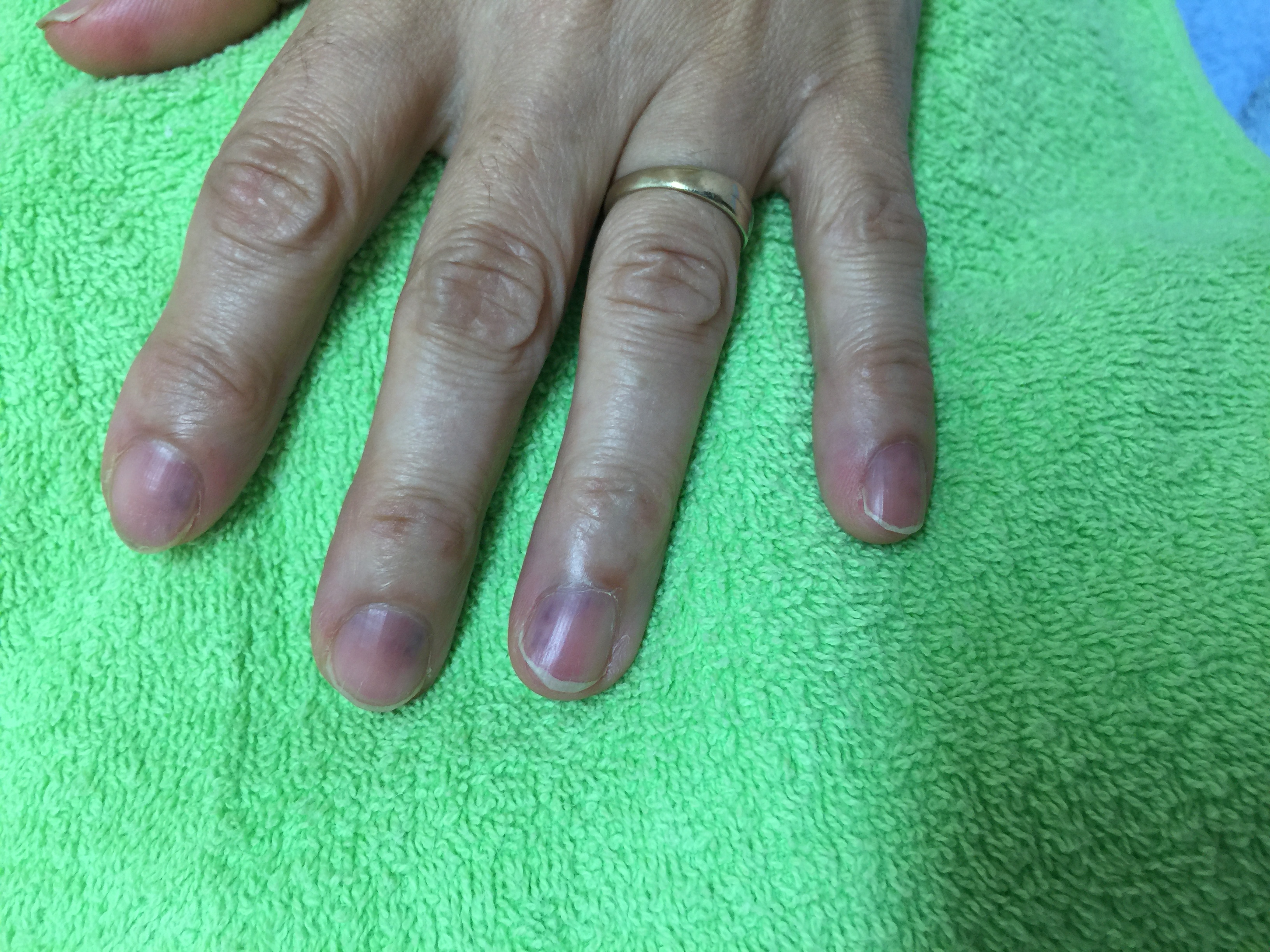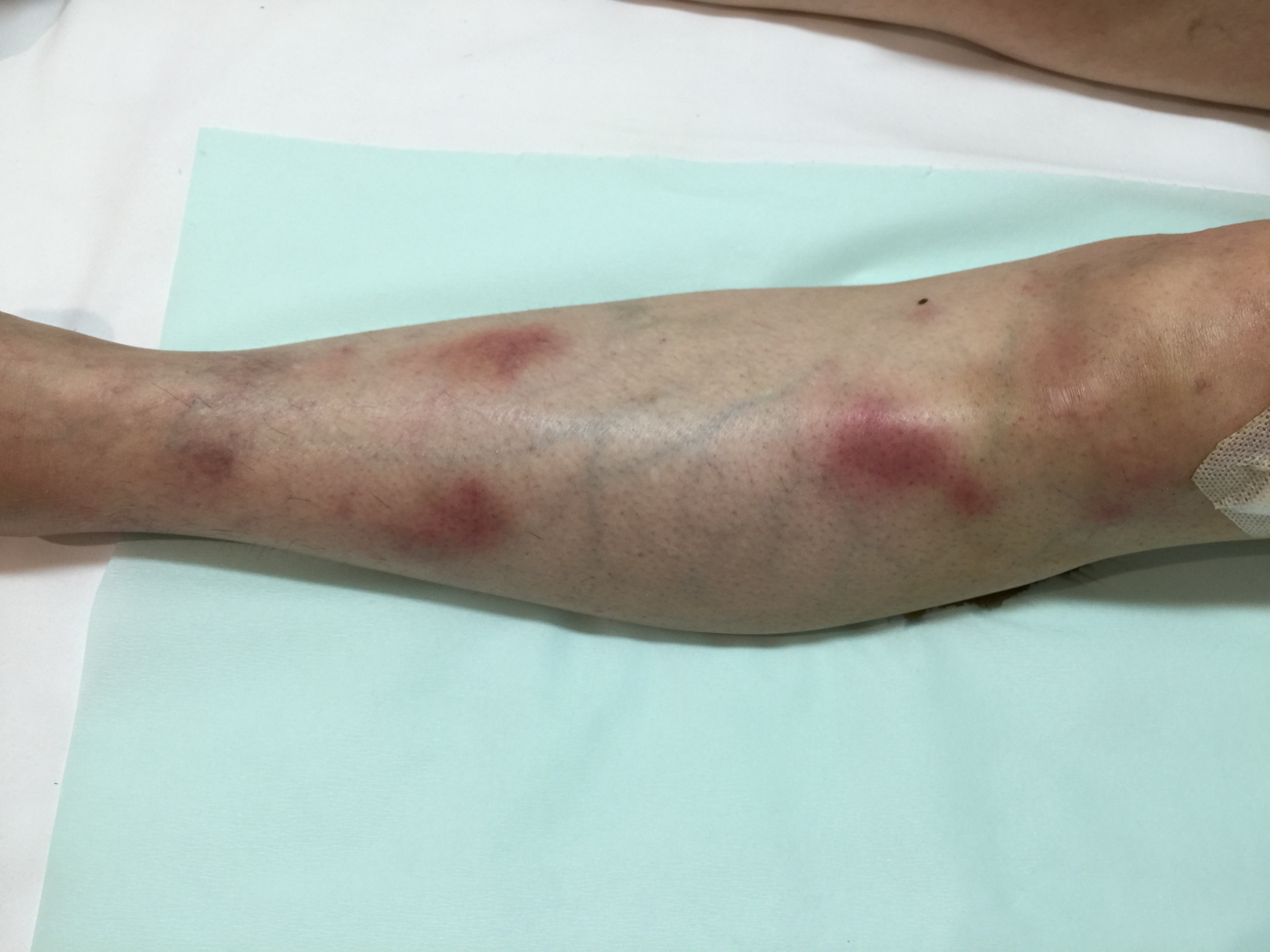Case Presentation: A 57 year-old Japanese female with no significant past medical history presented with fever, productive cough and swelling of right ankle for seven days. She lived with her grandchild and her son. Her grandchild had fever and rash three weeks ago, diagnosed with hand foot and mouth disease. Her son had elevated hepatic enzymes, polyarthritis and edema of hands two weeks ago, diagnosed with rheumatoid arthritis. On physical examination, splinter hemorrhages on her bilateral fingers and erythematous nodules with tenderness on her bilateral legs were found. Laboratory tests showed no remarkable changes. Although we suspected infective endocarditis or vasculitis, blood cultures were reported as negative and the result for ANCA was also negative. After all, her serum IgM antibody specific to Human parvovirus (HPV) B19 was revealed to be positive and we diagnosed her as adult HPV B19 infection. Her all clinical symptoms were improved naturally in a week.
Discussion: HPV B19 infection in adults is considered less common than in children. Adult HPV B19 infection often causes arthralgia or frank arthritis, with painful joints accompanied by swelling and stiffness. These symptoms may be mistaken for those of acute rheumatoid arthritis. Although adult HPV B19 infection sometimes causes vasculitis-like symptoms, the infection with both splinter hemorrhages and erythema nodosum like this case has never been reported. We consider her grandchild and her son were also infected with HPV B19 because it is reported that the transmission rate is about 50 percent for those living with infected persons. The incubation period of the infection, ranging from 4 to 21 days, also supports our diagnosis.
Conclusions: Adult HPV B19 infection sometimes causes vasculitis-like symptoms such as splinter hemorrhages and erythema nodosum. When we see the patients with these signs, adult HPV B19 infection should be considered as differential diagnosis in addition to infective endocarditis and vasculitis.


